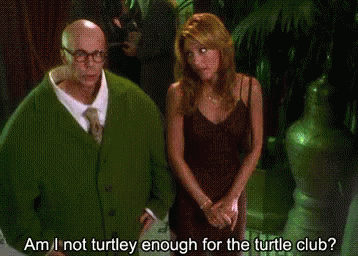Who Ya Crappin'?

Honesty as a best policy for intimacy
Hi (No) Wonder-ers,
In the mid-to-late 1990s, the Chicago-area radio ecosystem was… something. I had a 20-minute commute across town to get to my high school, and not one radio station played music in the morning – apparently, doing so causes listeners to bleed from the ears. So choices included sports talk radio… or some proto-Joe Rogan guy called Mancow, the sort of emotionally-stunted dudebro that sheltered white suburban all-boys Catholic high school students think is “cool” and “edgy.”*
So, sports talk radio it was.
Terry Boers and Dan Bernstein of WSCR had a weekly segment called “Who Ya Crappin’?” Here, listeners would submit examples of sports personalities being misleading, dishonest, or hypocritical.
Thus, “who ya crappin’?” became part of my vocabulary whenever I noticed dishonesty or hypocrisy on anyone’s part – especially my own. I promise myself something that I know, in my heart of hearts, that I can’t deliver? Who am I crappin’? Another person says something that rings blatantly hypocritical in light of their past actions? Who ya crappin’?
“Who ya crappin’?” is, at its heart, an invitation to be honest – honest with yourself, and honest with others. Both are vitally important to intimacy in relationships. Relationships can have any number of partners, genders, kinks, abilities/disabilities, and neurotypes; but honesty and transparency are the sine qua non. Without these, true intimacy (in the original Latin-language** sense of “closeness”) can’t exist. If we aren’t being honest with ourselves or presenting ourselves honestly, other people can’t see or relate meaningfully to our true selves. If others aren’t being honest, we can’t see or relate with their truest selves either. So without honesty, relationships amount to little more than performance art.
And you’re not Andy Kaufman, so WHO YA CRAPPIN’?
Lest anyone take this as an invitation to be what Taylor Swift calls “casually cruel in the name of being honest,” I’ll emphasize the importance of a constructive, non-judgmental, kind, tactful approach to vulnerable and uncomfortable conversations. “Brutally honest,” though sometimes necessary as a last resort, is often more “brutal” than “honest.” Punishing someone for being vulnerable is a pretty effective means of discouraging intimacy and driving someone back into their shell, like Dana Carvey in the 2002 comedy abomination “The Master of Disguise.”

So sometimes it’s worth asking ourselves, our friends, and our partners… WHO YA CRAPPIN’? Invite yourself and others to be honest and vulnerable, but don’t be a dick about it.
Mendacem memorem esse oportet,
Merrit
*Apparently the guy is still around and embracing full-on conspiracy theory after a failed run for Illinois governor.
**Intimus, -a, -um. adj. “Closest, inmost, most secret.”


